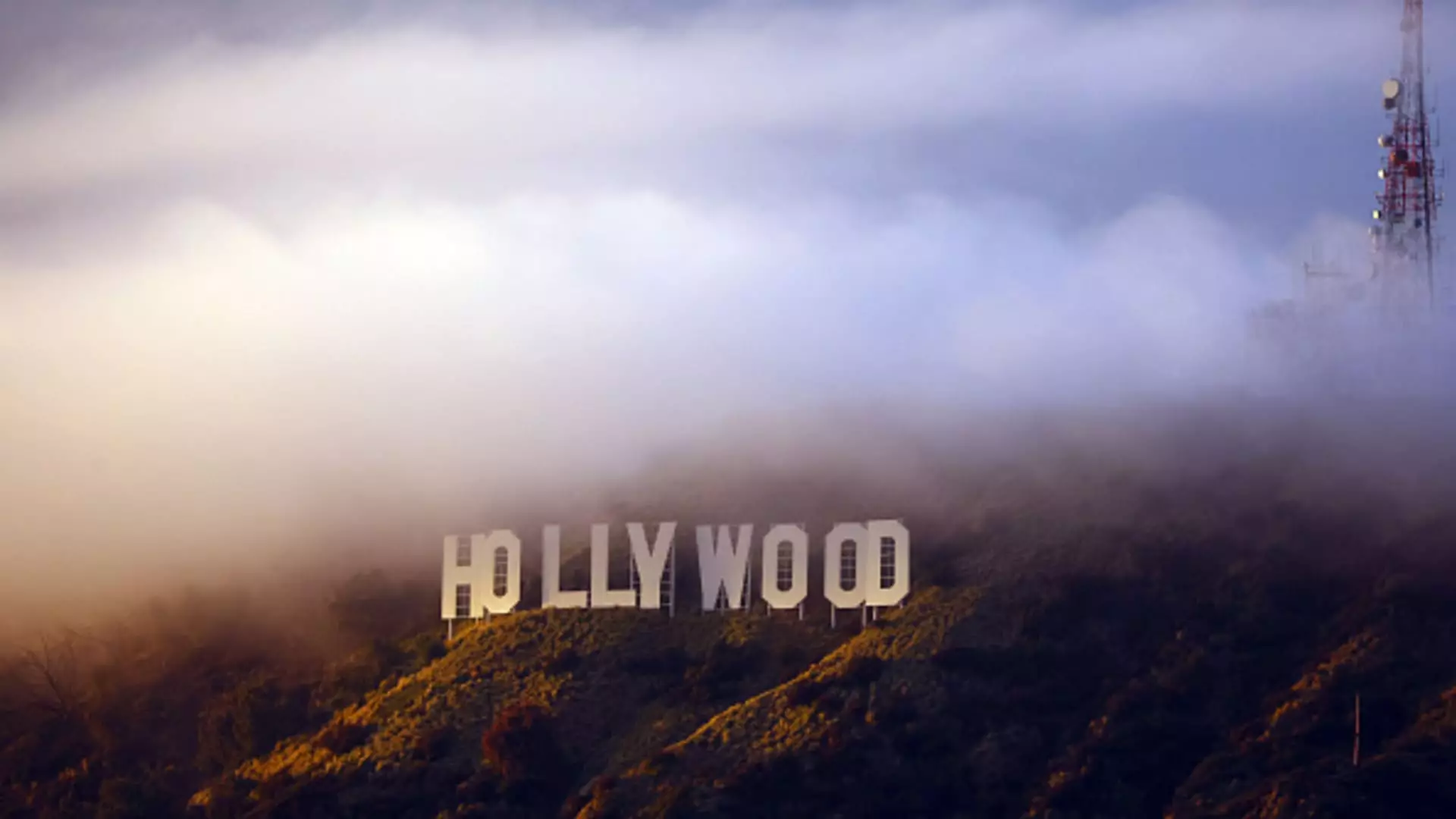In recent decades, Canada has earned its reputation as “Hollywood North,” serving as a prolific production hub for American films and television. The allure of Canadian landscapes combined with an impressive talent pool has made it an attractive destination for U.S. studios looking to create everything from blockbusters to niche films. The industry has thrived thanks to encouraging tax incentives offered by the Canadian government, which have drawn American filmmakers northward to exploit favorable conditions. However, recent developments, particularly in political arenas, are raising concerns about the fragile economic ties between Hollywood and Canada.
The initiation of trade tariffs by President Donald Trump has the potential to alter the dynamic between these two entertainment powerhouses dramatically. Imposing tariffs on Canadian imports could unravel the collaboration that has grown in strength for years, with industry insiders warning of possible retaliation from Canada in the form of withdrawable taxation incentives. Canadian Prime Minister Justin Trudeau emphasized on social media the serious repercussions this trade war could have, indicating that Canada would respond decisively—and that response could threaten the symbiotic relationship that has benefitted both nations economically.
The implications of these trade tariffs extend beyond politics into the considerable economic machinery of the film industry. As tariffs increase prices for certain goods, production budgets could feel the strain. Items imported for set design or costumes may see sharp price hikes, impacting project financing and execution. However, industry networks are resilient, as many productions already source their materials from local suppliers, diminishing the direct impact of tariffs on some segments.
While many film studios may not rely heavily on Canadian imports, the ripple effects of a broader economic downturn from rising tariffs cannot be overstated. Experts predict that costs will inevitably trickle down to consumers, as companies will likely pass on these increased expenses in the form of higher prices for their goods. As household budgets get tightened, discretionary spending becomes vulnerable, particularly for entertainment expenses like cinema outings. For an industry that has only recently begun to recover from the impacts of the COVID-19 pandemic and subsequent labor strikes, any slowdown in consumer spending may prove detrimental.
Moreover, Hollywood has historically operated on the principle of ensuring a hefty return on investment. The fear is that a contraction in consumer spending will either deter audiences from frequent trips to theaters or influence them to choose lower-cost entertainment options instead. This scenario could exacerbate the challenges already faced by the industry, potentially resulting in diminished box office revenues and, ultimately, impacting film financing for future projects.
Despite these challenges, industry experts project that Hollywood will find a way to adapt to the effects of this trade war. There is a significant collective will to maintain the Hollywood-Canada collaboration, given the substantial economic stakes involved. Yet, the real wildcard remains consumer behavior. The upcoming years will be crucial in determining whether forthcoming blockbuster releases can continually attract audiences back to their seats or whether the tightening belts of consumers will lead to an era of cheaper entertainment options, such as streaming services.
In the face of uncertainty, Hollywood remains hopeful that successful film releases scheduled for 2025 and beyond will draw audiences to theaters. However, this optimism must be balanced with a pragmatic view of the changing economic landscape, as both the entertainment industry and consumers navigate rising costs and a landscape marked by geopolitical tensions. Ultimately, the success of ensuring a robust recovery and continuation of the Hollywood-Canada partnership will hinge on finding ways to engage audiences, regardless of external pressures. In a globalized world, the interdependency of economies has never been clearer, and navigating these turbulent waters requires adaptability, foresight, and an unwavering commitment to the art of storytelling.

